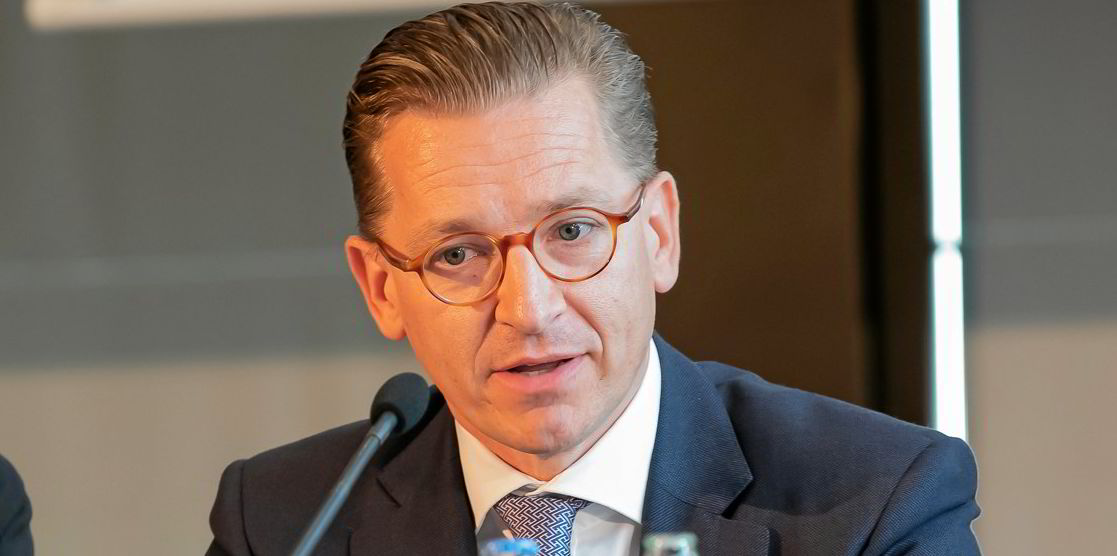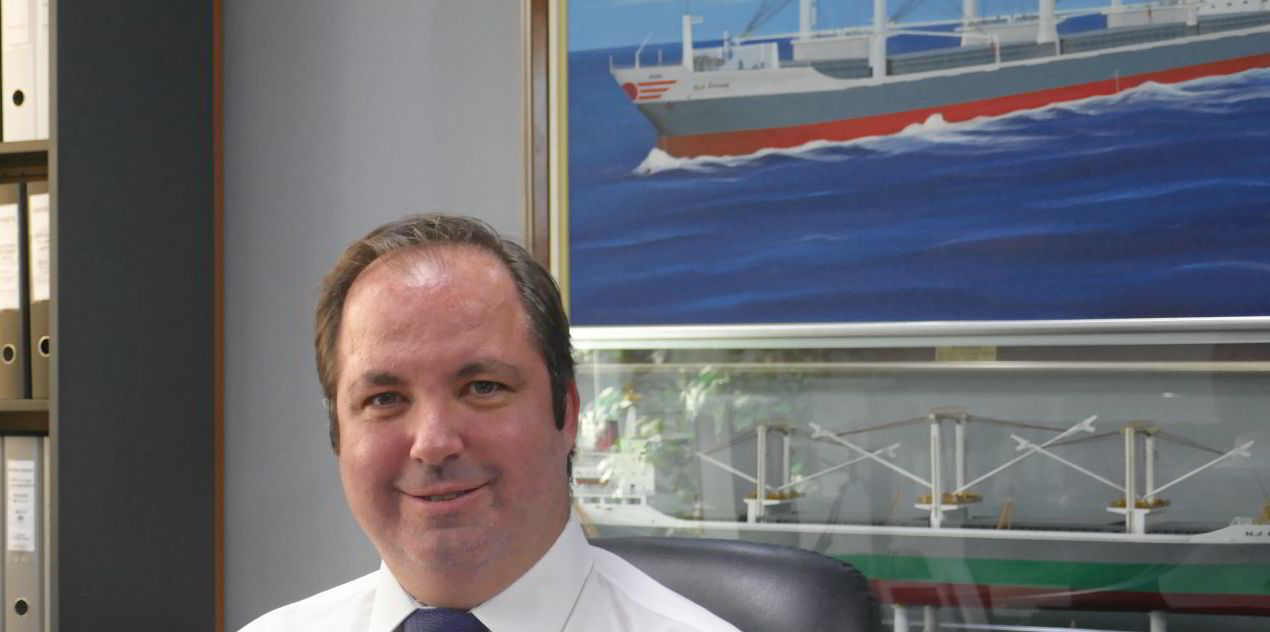MPC Capital managing director Christian Rychly has warned that the lowest-rated ships using the Carbon Intensity Indicator (CII) will see values and charter prospects damaged.
The German executive told the Marine Money Ship Finance Forum in London that demand from cargo owners to decarbonise vessels is “intensifying”.
Rychly explained that some shippers still do not want to pay for carbon-neutral shipments, but the trend is changing.
“There is more pressure, definitely, on the liner companies,” he added.
MPC is a major shareholder in Oslo-listed tonnage provider MPC Container Ships.
Rychly said the group has done a lot of work on decarbonisation already.
There is usually a sharing of the costs between owners and charterers.
“The reality of how we share it very much depends on the commercial framework,” he said.
“If we have a longer charter, obviously there is more incentive for the liner company to do something and take a large share of these retrofits. If that’s not the case, then it’s probably us that has to do something.”
CII penalty
There is a lack of a regulatory framework for decarbonisation, Rychly added, but he pointed to CII as one incentive to clean up shipping’s act.
“We already do see and expect that there will be a multi-tier market going forward,” he said.
“I am absolutely convinced that an E rating will have an impact on the value of your ship, will have an impact on your future employment options.”
MPC Capital has ordered methanol-fuelled boxship newbuildings backed by long-term charters in Norway.
Rychly said container ships in general serve predictable trade routes, meaning infrastructure investments for fuel supply are “fairly limited”.
“It’s an industry that is very close to the consumers and that is why there is probably more pressure than in the other sectors,” he added.
Referring to the announcement by Maersk and MSC Mediterranean Shipping Co this week that they will end their 2M alliance in 2025, he said the market will now see the different strategies of these companies.
Different approaches
Maersk will be focusing on providing carbon-neutral transport via its newbuildings and MSC will take “the opposite approach”, he added.
“It will be interesting to see if there is enough demand for [carbon-neutral transport], but without regulatory improvements it will take much longer.”
Fearnley Securities has said the end of the 2M cooperation will probably be negative for Maersk’s margins unless a new partner is found.
The investment bank is tipping the Danish carrier to search for a new tie-up after 2025.
Fearnley analysts believe MSC could operate on its own, given its size, but Maersk is losing access to MSC’s fleet in the Asia to Europe trade lane.
They argue that some rate volatility could be created, as carrier discipline will take a hit.





